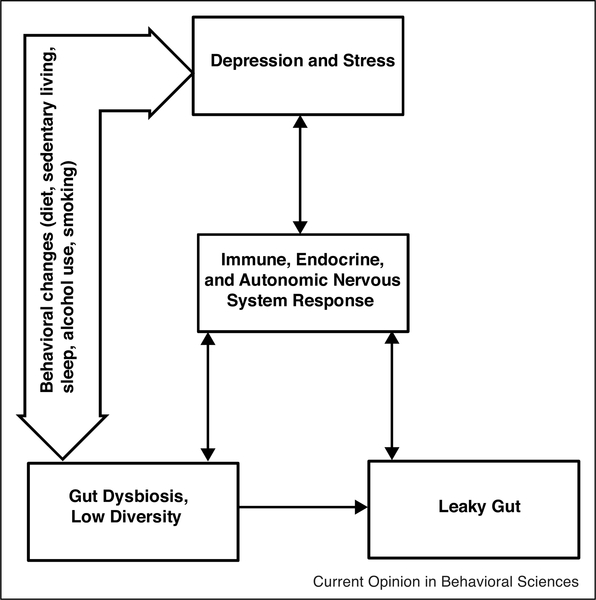Figure 1.
Gut environment’s hypothesized role in psychoneuroimmunology. Depression and stress get under the skin via behavioral and physiological changes, including altered immune function. These adverse changes promote the survival and replication of pathogenic gut bacteria and weaken the gut barrier. Gut dysbiosis itself increases gut permeability, and it may also influence health behaviors like diet. These physiological and behavioral changes can ultimately further dysregulate key stress-responsive systems, including the immune, endocrine, and autonomic nervous systems, thereby fueling the chronicity of depression and stress.

